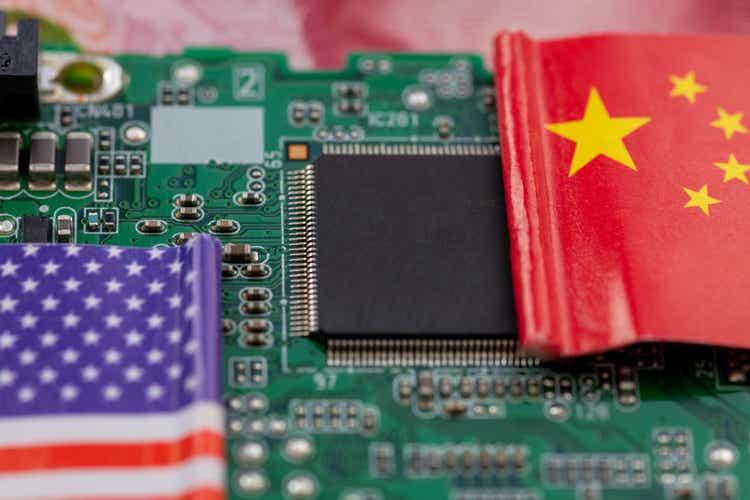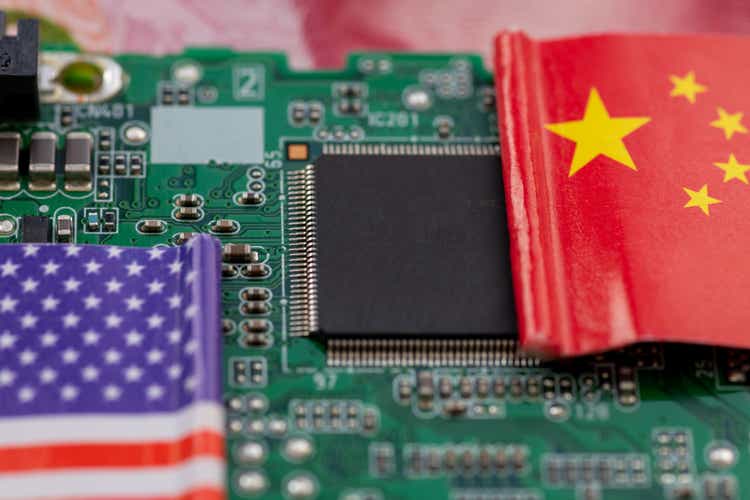
Yau Ming Low/iStock via Getty Images
The U.S. Department of Commerce has placed additional curbs on China’s access to vital tools and components for AI chips.
The new rules restrict sales of 27 types of high-bandwidth memory (HBM) and chipmaking equipment, including products made outside the country by American companies, and are in addition to existing curbs affecting advanced logic chips.
The department has also blacklisted an additional 140 Chinese entities that it said have been operating on behalf of the Chinese government. The names of these companies were not given in the initial statement.
The full list of new sanctions and company additions will be detailed later on Monday, a U.S. official told Bloomberg last week.
“This action is the culmination of the Biden-Harris Administration’s targeted approach, in concert with our allies and partners, to impair the PRC’s ability to indigenize the production of advanced technologies that pose a risk to our national security,” Secretary of Commerce Gina Raimondo said in a statement. “No Administration has been tougher in strategically addressing China’s military modernization through export controls.”
The controls unveiled Monday include exemptions for ally countries such as the Netherlands and Japan, according to a senior administration official, which are expected to impose similar restrictions. Neither government has so far issued such additional rules.
South Korea’s SK Hynix (OTCPK:HXSCF), a key Nvidia (NVDA) supplier, is a current leader in providing HBM chips, followed by Micron Technology (MU) -0.77% and Samsung Electronics (OTCPK:SSNLF). The controls may also likely hurt U.S. chipmakers like Lam Research (LRCX) -0.55%, KLA Corp (KLAC) and Applied Materials (AMAT) -0.32%.
